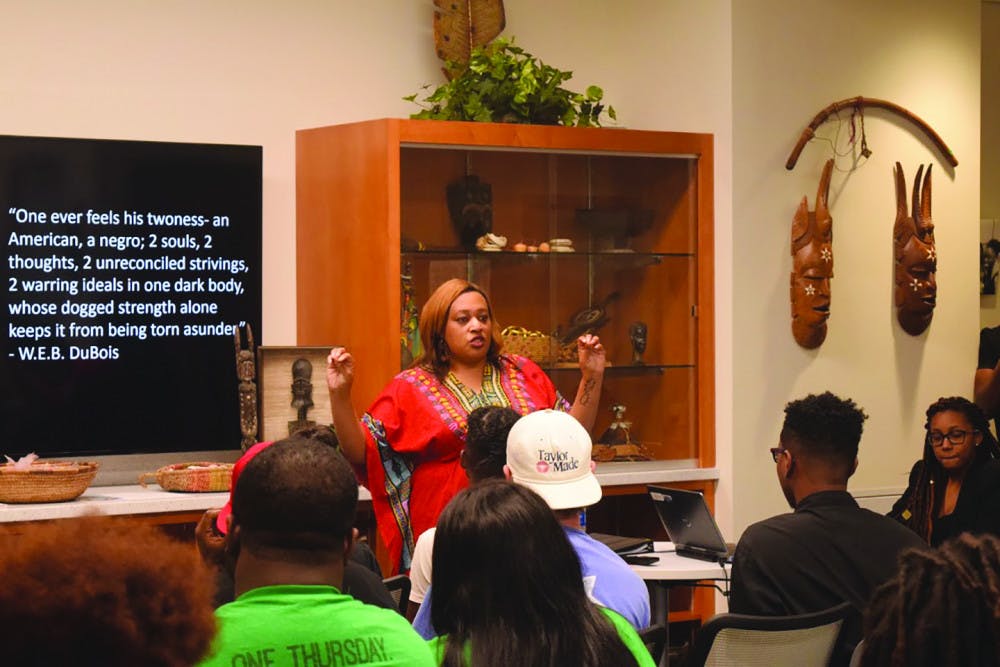One word.
For the 50-person, mostly black crowd gathered Tuesday at UF, the usage and history of a single, six-letter word generated an hour and a half of discussion.
Inside the Black Enrichment Center, as a part of the university’s celebration of Black History Month, the N-word was freely used as attendees grappled with its meaning and searched for a conclusion.
“I wanted to talk about the mentality of it,” said Vee Byrd, the director of Black Affairs and the event’s organizer. “How do we combat the mentality around being a n---- and what that means?”
Byrd, who has given similar discussions across the country for the past four years, began with the history of the word. “Negro” was a neutral term that meant black in Spanish, French and Italian. But with time, spelling and pronunciation changed and the word gained a new, derogatory meaning in the U.S.
It was how slaveholders referred to slaves, how whites referred to blacks. Over time, as its general use became stigmatized, the word became a term of endearment among members of the black community.
“I wanted to understand why this word was so common in my own mouth,” Byrd told the crowd.
She said knowing the history behind the word and its immersion into past and current pop-culture makes her wonder if anyone should be justified in using it.
“Yeah, it’s complicated,” she said.
Dashari Kearse, a 22-year-old UF anthropology and linguistics senior, said the word may leave a nasty taste in the user’s mouth, but it doesn’t mean people, himself included, will stop using it.
“The word can mean different things in the same sentence,” Kearse said. “I ain’t telling you how to say it, but proceed with caution.”
Those around him agreed. But the lines become blurred when someone of a different race utters the N-word.
“Yeah, we use it, but we don’t like it at the same time,” he said.
Chris Kessling, a 25-year-old UF alumnus, sat in the middle of the crowd. Even though he sat quietly, his pale skin, blue-green eyes and dirty blonde hair made his presence known.
“Not being African-American, the more I can learn the better,” he said.
Kessling works with students as a staff member with Cru, an on-campus Christian organization. He said his goal to connect with students on a spiritual level drove him to learn about the history and culture of the N-word.
“It’s super helpful knowing where the word comes from and answering the question, ‘Should it be used or should it not?’ even in the black community.”
Byrd, who will be leaving UF after four years next week, said she felt the discussion was a good way to end her time working with African-American students at the university.
“It’s a way of reframing conversations and getting our campus community to start looking at things differently, too,” she said.
About 50 people came together to hear Vee Byrd give her last presentation at UF as the director of Black Affairs. The topic of conversation was the history and discussion of the N-word.






